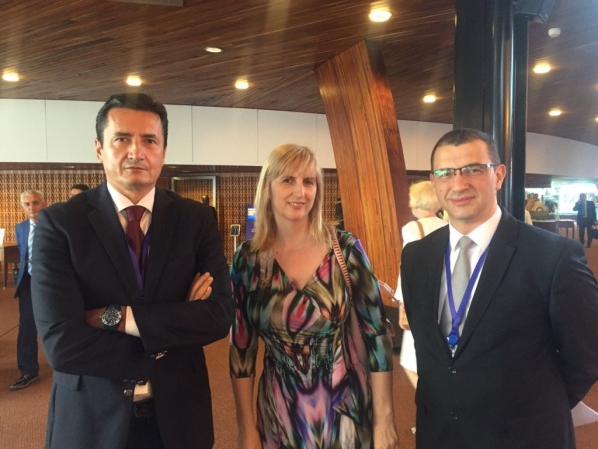On day three of the Session of the Parliamentary Assembly of the Council of Europe (PACE), discussions were held on democratic institutions in Turkey, administrative detention measures, and role of the Parliamentary Assembly as a pan-European forum for inter-parliamentary dialogue and cooperation.
Special attention was paid to discussion on functioning of democratic institutions in Turkey, and especially the issues with regard to freedom of media, rule of law, and respect for human rights. In the Resolution adopted upon proposal by co-rapporteurs Ms Ingebjørg Godskesen (Norway) and Ms Nataša Vučković (Serbia), the PACE concludes that recent events relating to freedom of the media and of expression, as well as undermining of the rule of law and violation of human rights relating to counterterrorism operations in south-eastern Turkey represent a threat to the functioning of democratic institutions and the country’s honouring of its obligations towards the Council of Europe. The Parliamentary Assembly reminded that the Turkish authorities had been called to fulfil the remaining obligations stemming from the post-monitoring dialogue with the PACE, and reiterated willingness of the Council of Europe and especially of the Venice Commission to provide support to the Turkish authorities in this respect.
With regard to discussion on measures of administrative detention, at today’s session the PACE expressed concern that in certain member states these measure were abused and it reemphasised the significance of respecting the right to freedom and security in accordance with European Convention on Human Rights. In its Resolution 2122 (2016), the PACE invites member states of the Council of Europe to refrain from using measures of administrative detention as a mechanism for migration management, as well as to refrain from using administrative detention for the purpose of restriction of freedom of political opponents, human rights activists or journalists, as well as participants in peaceful protests or those that plan to do so.
On day three of the Session, the Parliamentary Assembly was addressed by Prime Minister of Estonia Mr Taavi Rõivas and Prime Minister of Greece Mr Alexis Tsipras, and in the afternoon part of the Session there was discussion on the topic of the role of the Parliamentary Assembly as a pan-European forum for inter-parliamentary dialogue and cooperation.
During the day, there were meetings of political groups, as well as meetings of several committees of the Parliamentary Assembly, including the Committee on Migration, Refugees and Displaced Persons, Committee on Equality and Non-Discrimination, and Committee on Social Affairs, Health and Sustainable Development.
On day four of the Session, there will be a joint debate on significance of culture in democratic societies, and the role of educational and cultural networks of communities of emigrants, a debate on the nature of the mandate and immunity of members of the Parliamentary Assembly, and a debate on transparency in European institutions.
